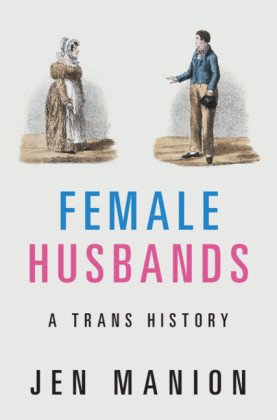Female Husbands - A Trans History
| Verlag | Cambridge University Press |
| Auflage | 2020 |
| Seiten | 350 |
| Format | 15,9 x 23,5 x 2,4 cm |
| Gewicht | 650 g |
| Artikeltyp | Englisches Buch |
| EAN | 9781108483803 |
| Bestell-Nr | 10848380UA |
A timely and comprehensive history of female husbands in Anglo-America from the eighteenth through the turn of the twentieth century.
Long before people identified as transgender or lesbian, there were female husbands and the women who loved them. Female husbands - people assigned female who transed gender, lived as men, and married women - were true queer pioneers. Moving deftly from the colonial era to just before the First World War, Jen Manion uncovers the riveting and very personal stories of ordinary people who lived as men despite tremendous risk, danger, violence, and threat of punishment. Female Husbands weaves the story of their lives in relation to broader social, economic, and political developments in the United States and the United Kingdom while also exploring how attitudes towards female husbands shifted in relation to transformations in gender politics and women's rights, ultimately leading to the demise of the category of 'female husband' in the early twentieth century. Groundbreaking and influential, Female Husbands offers a dynamic, varied, and complex history of the LGBTQ past.
Inhaltsverzeichnis:
Introduction: extraordinary lives; Part I. UK Husbands, 1740-1840: 1. The first female husband; 2. The pillar of the community; 3. The sailors and soldiers; 4. The wives; Part II. US Husbands,1830-1910: 5. The workers; 6. The activists; 7. The criminalized poor; 8. The end of a category; Conclusion: sex trumps gender; Epilogue: the first female-to-male transsexual.
Rezension:
'An altogether fresh and innovative take on centuries-old identities and relationships, Female Husbands shows its readers how the most forward-thinking and progressive conceptions of gender and sexuality can find their origins in the past. ... Manion's female husbands are brought to life by energetic prose and an insistence on their continued cultural and political impact.' Hannah Roche, Times Literary Supplement

